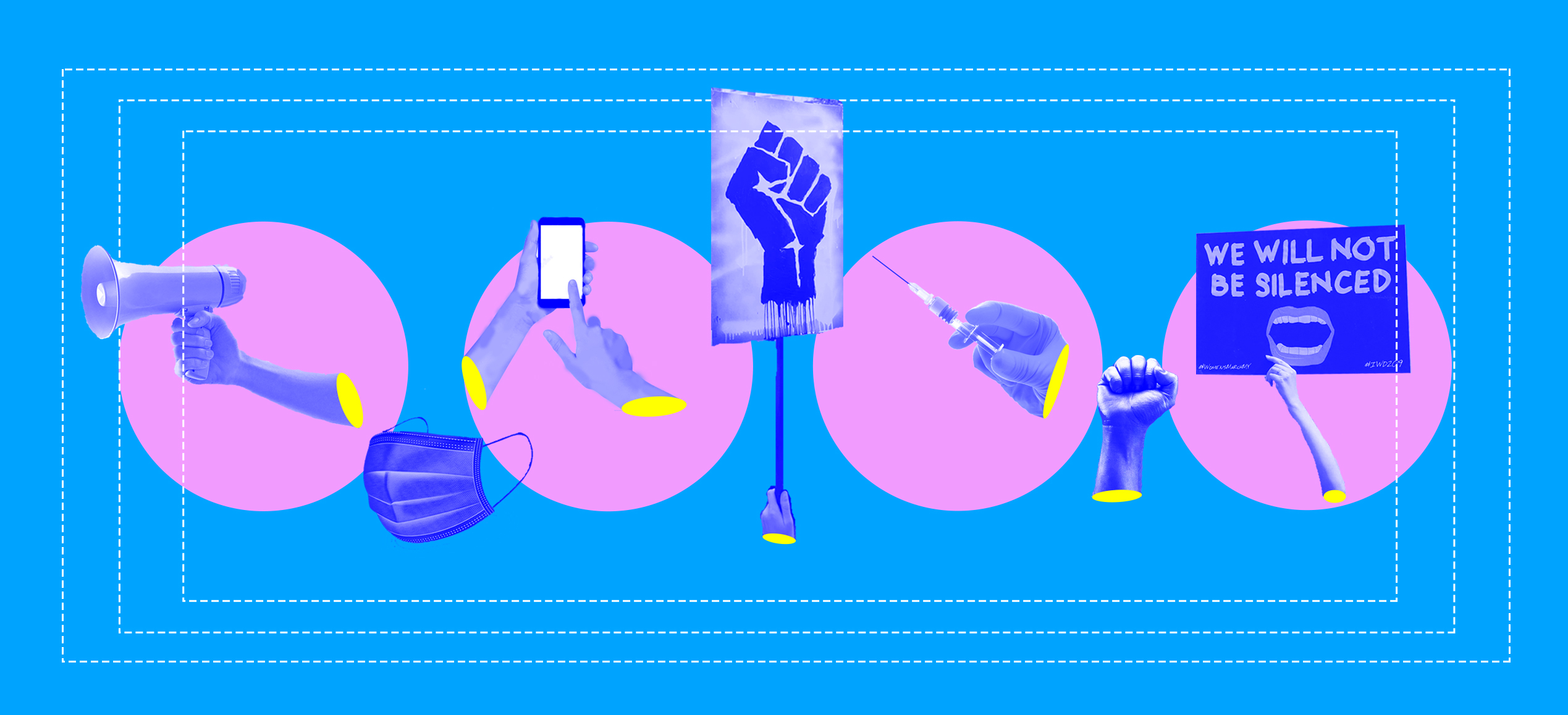This week, Access Now and the USC Gould School of Law’s International Human Rights Clinic (USC IHRC) – with the support of the international law firm Foley Hoag LLP (on behalf of Access Now) – submitted an Urgent Appeal to the United Nations Special Rapporteur on the Rights to Freedoms of Peaceful Assembly and of Association, Mr. Clement Nyaletossi Voule. The Urgent Appeal – an emergency U.N. Human Rights Council’s Special Procedures mechanism that raises attention to human rights violations by governments – spotlighted the intensifying human rights violations committed by the U.S. government against protesters.
The appeal specifically outlines the federal government’s deployment of militarized police forces into communities – including Portland OR, Chicago IL, and Albuquerque NM – without state or local official request or authorization. Sources have documented these police forces arbitrarily detaining demonstrators in unarmed vehicles, and, with military style weaponry, engaging in violent crackdowns against those seeking racial justice as part of the broader Black Lives Matter movement.
The appeal calls on the U.N. Special Rapporteur to use his mandate to increase efforts, and coordination with other Special Rapporteurs, to urge the U.S. government to cease the arbitrary detention and cruel treatment of peaceful protesters, and comply with its obligations under international human rights law. It consists of a total of 19 specific calls to action, including to:
- send a Communication to the U.S. government and call for an immediate, thorough, and impartial investigation into alleged human rights violations, including those against peaceful demonstrators, journalists, and medics;
- seek an official visit to the U.S., and appeal to the government to grant unimpeded access for the U.N. Human Rights Council, and other human rights actors, to further investigate federal, state, and local law enforcement responses to racial justice demonstrations.
Chilling effects on freedom of expression extend online via law enforcement’s abuse of surveillance tools to monitor lawful political activity during peaceful demonstrations. “Examples across the U.S. show tools intended for various ends repurposed for surveillance of protesters,” said Peter Micek, General Counsel and U.N. Policy Manager at Access Now. For instance, the U.S. Department of Homeland Security uses drones, airplanes, and helicopters purchased for its customs and border enforcement to monitor Black Lives Matter demonstrations in more than 15 cities; video footage captured by “smart streetlights” in San Diego has been repurposed to persecute protesters; and police are monitoring social media and procuring protest and protesters’ Twitter data.
“These violations of the fundamental human right to privacy also interfere with the exercise of a range of other rights, including peaceful assembly, both online and off. The U.N. has worked to clarify the rights of protesters in the digital age – see the Human Rights Committee’s recent General Comment No. 37 – and assert that the right applies online, but the message hasn’t gotten through to governments like the Trump administration,” said Micek.
“Such conduct by federal officials implicates the U.S. obligations under international human rights law as encompassed in both the International Covenants and the Universal Declaration of Human Rights, as well as other human rights conventions,” said Christina Hioureas, Counsel, International Litigation and Arbitration Practice and Chair, United Nations Practice Group, at Foley Hoag LLP. “This Urgent Appeal is part of a broader call to the international community to address systemic and ongoing human rights violations in the U.S. and globally.”
In June 2020, as human rights abuse against peaceful demonstrators escalated in the U.S., the U.N. Human Rights Council held an “Urgent Debate on Current Racially Inspired Human Rights Violations, Systemic Racism, Police Brutality and Violence Against Peaceful Protests” to prioritize the necessity of confronting the global legacy of colonialism and slavery to tackle the root causes of systemic racial inequality. George Floyd’s brother, Philonise Floyd, delivered a powerful intervention, drawing attention to peaceful protesters honoring his brother who were met with tear gas and rubber bullets at the hands of the police. Amnesty International estimates that from May 26 — June 5, 2020 there were 125 separate incidents of police violence against peaceful protesters. Amidst the surge of calls for an end to police violence, protesters in the U.S. continued to be subjected to unlawful arrests, arbitrary detention, cruel treatment, and suppression of freedom of expression by militarized police forces.
“These recent incidents of police violence and the restriction on freedom of peaceful assembly have alarmed the global community” said Professor Hannah Garry, Founding Director of the USC IHRC. “We must continue to raise human rights violations through strategic action at the U.N. level.”
